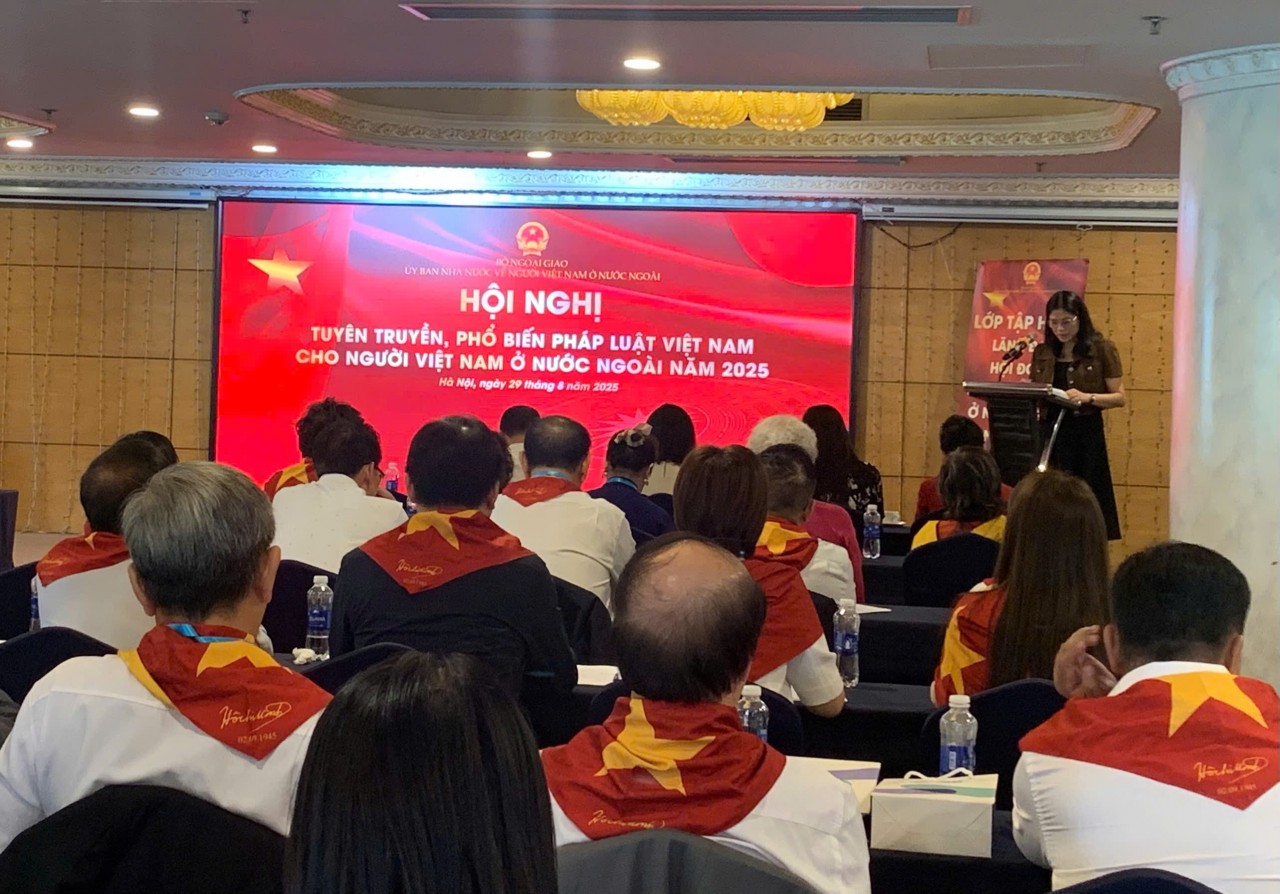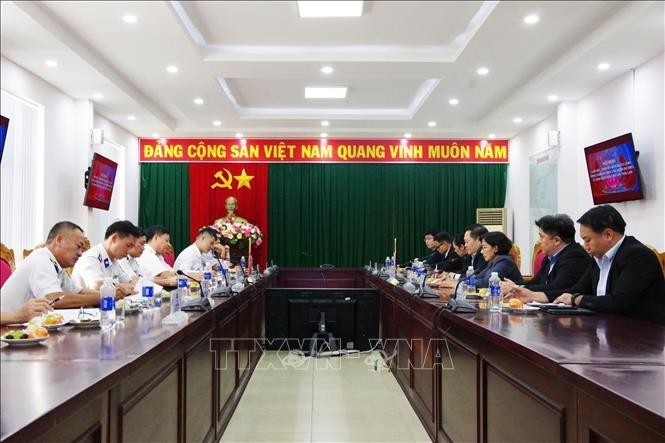Which Laws Go Into Effect on January 1, 2022 in Vietnam?
Six laws on environmental protection, handling of administrative violations, Vietnamese laborers working abroad, drug prevention and control, border defense and statistics come into effective in Jan. 1, 2022, reported VGP.
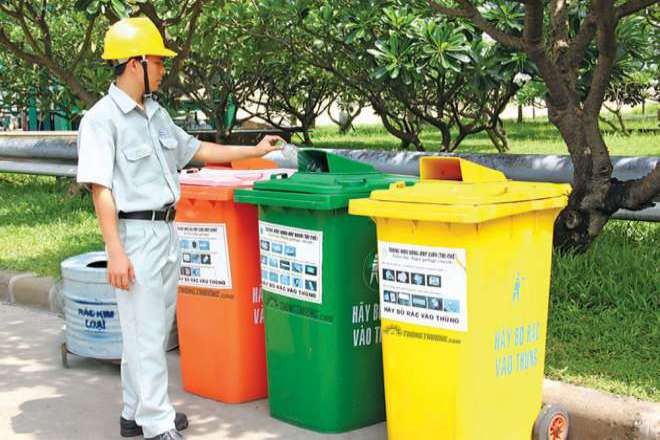 |
| Domestic solid wastes must be sorted into reusable or recyclable solid wastes, food wastes, and other solid domestic wastes. Such solid wastes must be put in separate packages for collection and treatment. |
The Law on Environmental Protection was adopted by the 14th National Assembly at its 10th sitting on Nov. 17, 2020. This law consists of 16 Chapters and 171 Articles.
Law No. 72/2020/QH14 on environment protection will take effect from Jan. 1, 2022, except for the section on preliminary environmental impact assessments (PEIA) which took effect from Feb. 1, 2021. The new law introduces the following key changes:
Stipulating detailed criteria for the classification of investment projects to determine whether a project is required to conduct or obtain PEIA, environmental impact assessment, environmental permit, or environmental registration;
Introducing new requirements including PEIA, environmental permitting, and environmental registration;
Introducing new regulations on residential communities and their roles during the process of environmental impact assessment of investment projects;
| The Law also sets a new management regime for solid wastes in order to gradually form a circular economy, including the application of extended producer responsibility (EPR) policy approach to the recovery and recycling of products and packaging (Article 54); payment for service charges for collection, transportation and treatment of domestic solid wastes based on the volume of sorted wastes (Article 79); and self-recycling, treatment, co-treatment of, or recovery of energy from, normal industrial solid wastes (Article 82). Regarding payment of charges for collection, transportation and treatment of domestic solid wastes based on the volume of sorted wastes, the Law requires that domestic solid wastes must be sorted into reusable or recyclable solid wastes, food wastes, and other solid domestic wastes. Such solid wastes must be put in separate packages for collection and treatment. Places for collection and transit of solid wastes must have different areas for separate storage of sorted solid wastes. Reusable or recyclable solid wastes and properly sorted hazardous wastes are not liable to charges for collection, transportation and treatment. Other types of solid wastes must be stored in packages provided by local People’s Committees to facilitate their collection and recycling. Garbage-collecting and -transporting units may refuse to collect and transport wastes that are neither sorted nor put in proper packages. In case households and individuals fail to classify or classify them improperly as prescribed in Article 75, they must pay the same service charges for collection, transportation, and treatment as other daily-life solid wastes. |
Setting out more detailed regulations on mitigation of greenhouse gas emissions and protection of the ozone layer as well as the establishment and development of a carbon market for exchanging greenhouse gas emissions quotas and carbon credits; and
Providing detailed guidance on environmental auditing, which is defined as a systematic and comprehensive consideration and assessment of the effectiveness of environmental management and pollution control by production, business and service establishments. The self-environmental audit is encouraged and the Ministry of Natural Resources and Environment (MoNRE) will provide specific guidance on self-environmental audit.
Currently, the Vietnamese Government is working on regulations to guide the implementation of the new law. Notably, the MoNRE has recently circulated a draft decree on mitigation of greenhouse gas emissions and protection of the ozone layer. This draft decree also stipulates a roadmap for the establishment and development of a domestic carbon market for Vietnam.
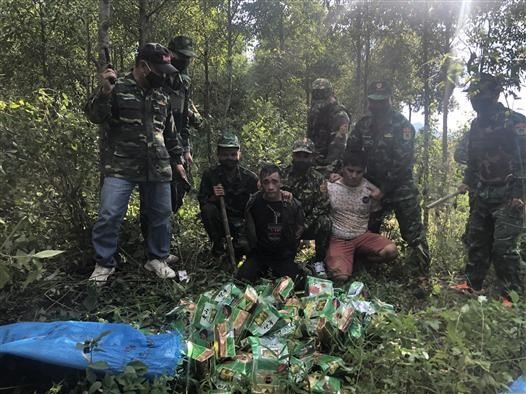 |
| Border guards in the central province of Quang Tri bust a trans-border drug trafficking ring from Laos to Vietnam, seizing 46kg of crystal meth in 2021. Photo: VNA |
The Law on Drug Prevention and Control, which was approved at the 11th sitting of the 14th National Assembly, comprises eight Chapters and 55 Articles.
It specifies regulations on drug prevention and control, the management of people using drugs illegally, detoxification, the responsibility of individuals, families, offices, and organizations in drug prevention and control, and State management and international cooperation in the issue.
Compared to the 2000 Law on Drug Prevention and Control (revised in 2008), it regulates more forbidden behaviors, supplements regulations on the control of drug precursors, and specifies cases requiring drug tests, among others.
Notably, the 2021 law contains specific regulations on the compilation of dossiers in order to send drug addicts aged from full 12 to under 18 to compulsory detoxification establishments.
The Law on amendments and supplements to a number of articles of the Law on Handling of Administrative Violations was adopted on Nov. 13, 2020, at the 10th sitting of the 14th National Assembly.
Under the revised law, the maximum fine levels shall be increased in the following 10 fields:
- A fine from VND 40 million to VND 75 million (US$ 1,739 - 3,260) shall be imposed on violations in the fields of road traffic and social evil prevention and control;
- A fine from VND 50 million to VND 75 million (US$2,134 - 3,260) shall be imposed on violations in the fields of cipher, national border management and protection, and education;
- A fine from VND 50 million to VND 100 million (US$2,134 - 4,348) shall be imposed on violations in the field of electricity;
- A fine from VND 100 million to VND 200 million (US$4,348 - 8,695) shall be imposed on violations in the field of protection of consumer interests;
- A fine from VND 100 million to VND 250 million (US$4,348 - 10,869) shall be imposed on violations in the fields of hydraulic work and press; and,
- A fine from VND 150 million to VND 500 million (US$6,521 - 21,739) shall be imposed on violations in the field of real estate business.
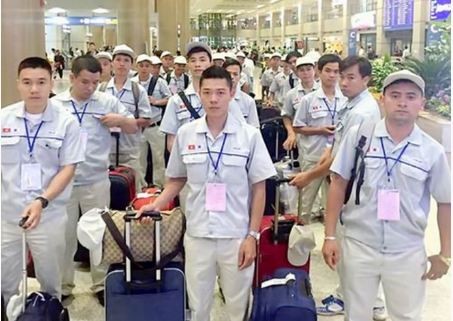 |
| In March 2020, around 560,000 Vietnamese people were working in more than 40 countries and territories worldwide. |
The Law on Vietnamese workers working abroad under the contract (revised) includes eight Chapters and 74 Articles.
An employee may unilaterally terminate the contract when being abused or forced to work by employees or being sexually harassed when working abroad.
Employees working abroad do not have to pay social insurance or social income tax twice in Viet Nam or in host country or territory if Viet Nam and that country or territory have signed an agreement on social insurance or double taxation.
The Law on Vietnam Border Defense specifies seven policies of the State on border defense, including supplementing specific policies for the development of economy, culture, society, science, technology, and diplomacy at border areas.
The Law defines that activities at border areas, border belts, and restricted zones will be restricted or temporarily suspended in cases of armed conflict, terrorism, kidnapping, or when notices on restriction/suspension of cross-border travel are issued by competent authorities.
The Law on amendments and supplements to a number of articles of the Law on Statistics and Appendix List of national statistical indicators of the Law on Statistics was approved at the second sitting of the 15th National Assembly.
This law is expected to better assess socio-economic performance.
Regulations on e-commerce involving foreign traders supplemented The Government has issued Decree No.85/2021/ND-CP amending and supplementing several articles of Decree No.52/2013/ND-CP on e-commerce involving foreign traders, NDO reported. Foreign traders and entities operating websites to provide e-commerce services with Vietnamese domains and language, and having over 100,000 transactions from Vietnam each year, must register e-commerce activities in line with regulations, establish representative offices or appoint authorized representatives in the country. Their representative offices or authorized representatives must work with Vietnam’s State management agencies to prevent transactions of goods and services that violate the nation’s laws. According to a study conducted by iPrice Group and SimilarWeb, the top 50 shopping sites’ web visits in Vietnam's Map of E-commerce in the first six months reached more than 1.3 billion, the highest ever and up by 10% from the first quarter of 2021. |
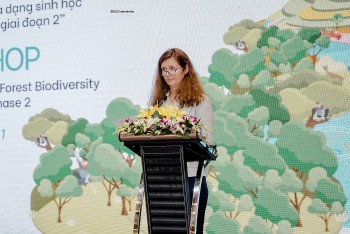 | Vietnam, Germany Cooperate to Strengthen Biodiversity Conservation Germany to strengthen biodiversity conservation in Vietnam |
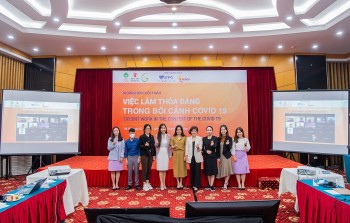 | Strengthening Enforcement of Vietnam's Child Labour Laws The workshop "Decent work in the context of the Covid-19" was held with the aim to provide information, share methods, and ways for businesses to ... |
 | Vietnamese Ambassador Re-elected to International Law Commission Ambassador Nguyen Hong Thao has been elected to the International Law Commission for the second time. |
Recommended
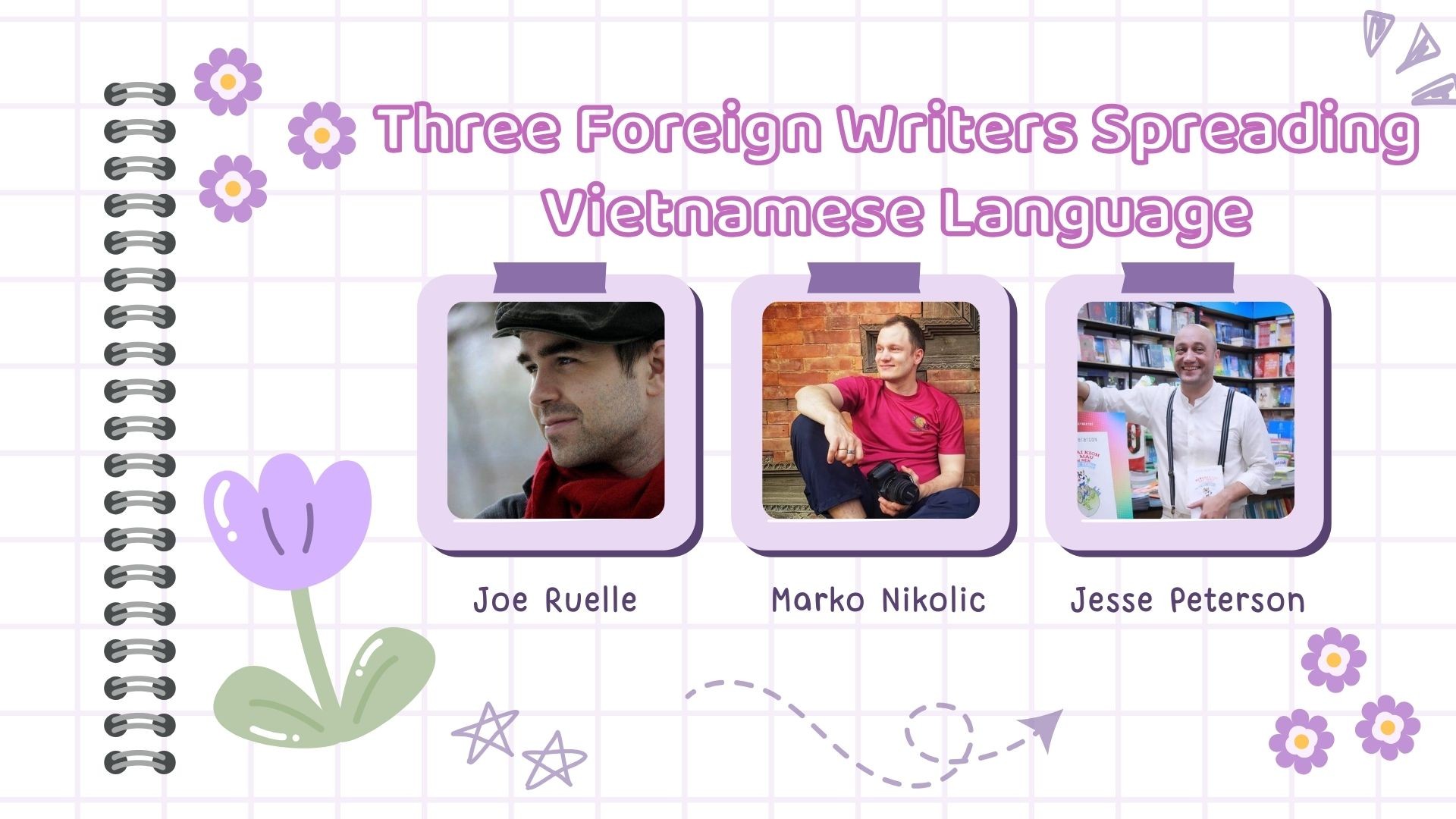 Expats in Vietnam
Expats in Vietnam
Three Foreign Writers Spreading Vietnamese Language
 Expats in Vietnam
Expats in Vietnam
An Giang Assists Ukrainian Citizen In Safe Return Home
 Expats in Vietnam
Expats in Vietnam
“Continuum: Vietnam” - Andy Soloman’s Three-Decade Journey Through Time
 Expats in Vietnam
Expats in Vietnam
Lao Cai Found Two Lost German Tourists in Hoang Lien National Park
Popular article
 Expats in Vietnam
Expats in Vietnam
Thai Students Practice Vietnamese Language in Da Nang
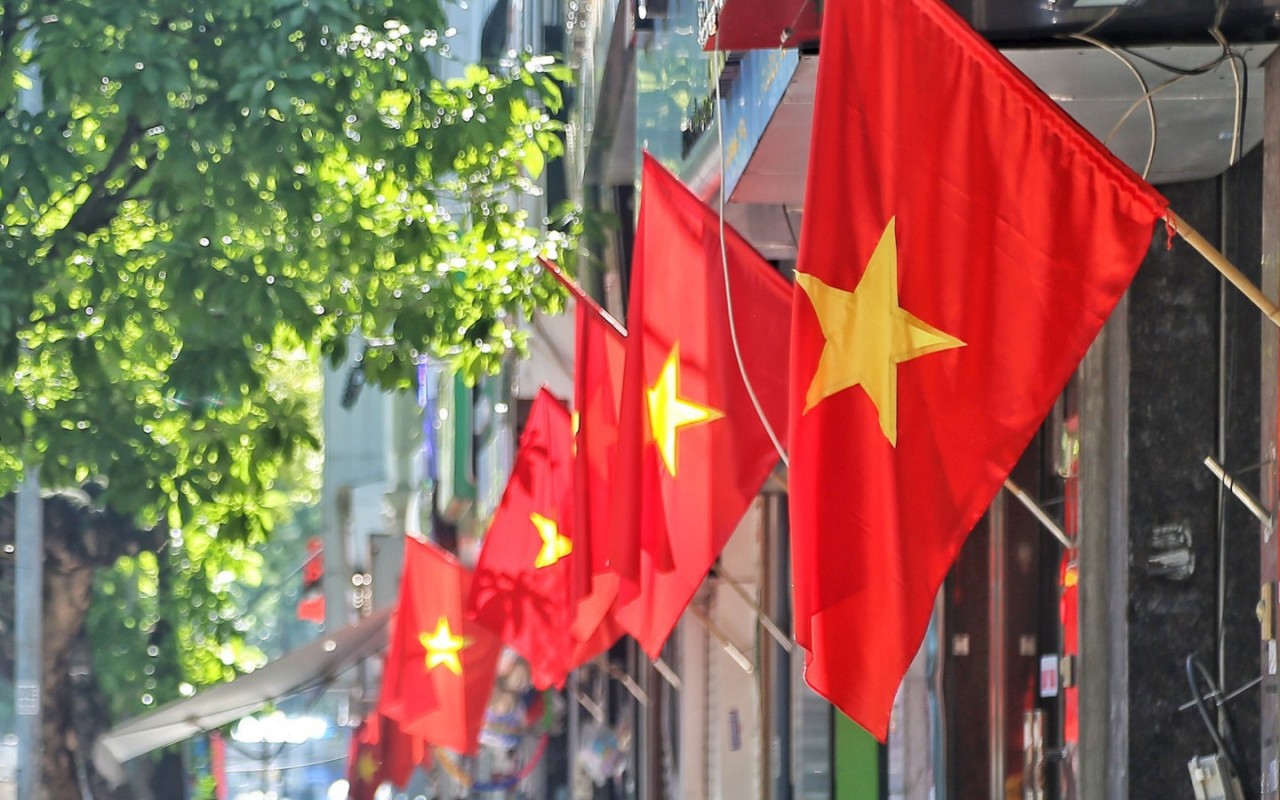 Expats in Vietnam
Expats in Vietnam
International Tourists Impressed by National Day Atmosphere in Hanoi
 Expats in Vietnam
Expats in Vietnam
Career Opportunities in Vietnamese Language and Culture in Foreign Companies: Perspective from RoK's Employer
 Expats in Vietnam
Expats in Vietnam





